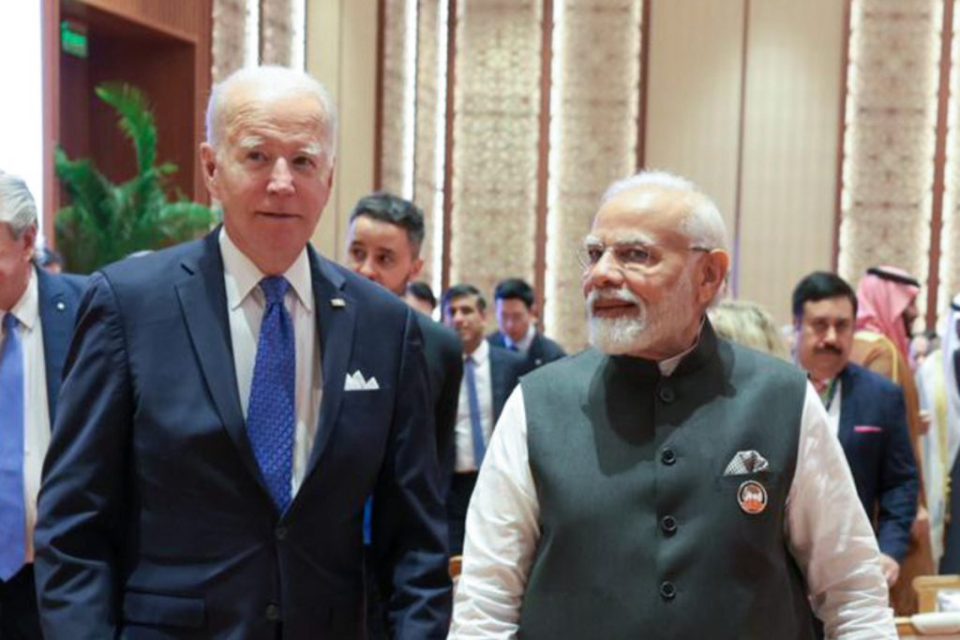In a significant turn of events, leaders from various nations, including U.S. President Joe Biden, voiced their apprehensions to Indian Prime Minister Narendra Modi during this month’s G20 summit. Their concerns centered on claims made by Canada, alleging New Delhi’s involvement in the assassination of Sikh separatist leader Hardeep Singh Nijjar on Canadian soil. This development, as reported by the Financial Times on Thursday, has escalated international tensions and sparked a diplomatic row.
Sources close to the discussions at the G20 summit revealed that several members of the Five Eyes intelligence-sharing network, comprising the United States, the United Kingdom, Canada, Australia, and New Zealand, brought up the murder of Hardeep Singh Nijjar in British Columbia in June during their conversations with Prime Minister Modi. However, the White House has yet to provide an official response to the Financial Times report.
It is worth noting that the G20 summit was held in India shortly before Canadian Prime Minister Justin Trudeau publicly accused India of involvement in Nijjar’s killing during an address to the Canadian parliament earlier this week. Canada had urged its allies to address the case directly with Prime Minister Modi, prompting these leaders to intervene during the G20 summit.
On Thursday, U.S. National Security Advisor Jake Sullivan asserted that the United States has been in high-level communication with Indian authorities following Ottawa’s claims regarding the murder of the Sikh separatist leader in Canada. Sullivan emphasized that India would not receive any “special exemption” in this matter. India swiftly rejected Canada’s allegations, dismissing them as “absurd.” Consequently, this crisis has strained Canada-India relations, leading India to take action by suspending new visas for Canadians and requesting a reduction in Canada’s diplomatic presence in the country.
This ongoing situation has placed Western nations in a precarious position. Canada has long been a trusted partner and ally, but these countries are also actively seeking to forge strong ties with New Delhi to counterbalance China’s influence in the Asia Pacific region.
Moreover, during a White House press briefing, U.S. National Security Advisor Jake Sullivan conveyed deep concern about Canada’s allegations. He reaffirmed the United States’ support for the investigation and emphasized the importance of bringing the perpetrators to justice. When questioned about whether President Joe Biden would discuss the issue with Prime Minister Narendra Modi, Sullivan stated that the matter had been deliberated at the highest levels and refrained from disclosing details of private diplomatic conversations.
Sullivan commented, “It is a matter of concern for us. It is something we take seriously. It’s something we will keep working on, and we will do that regardless of the country. There is not some special exemption you get for actions like this. Regardless of the country, we will stand up and defend our basic principles. And we will also consult closely with allies like Canada as they pursue their law enforcement and diplomatic process,” as reported by Hindustan Times.
As tensions continue to escalate between India and Canada over the murder of Hardeep Singh Nijjar, the global community watches with growing concern, eager to see how this delicate diplomatic issue unfolds in the coming weeks.

